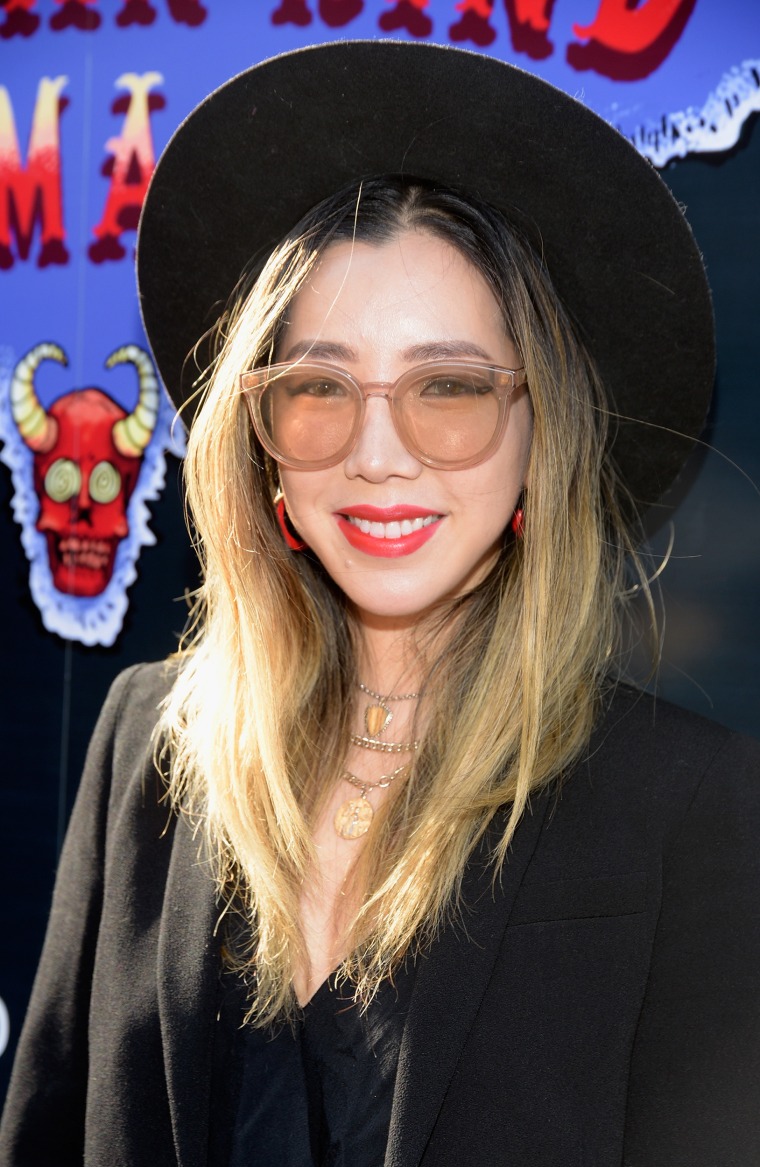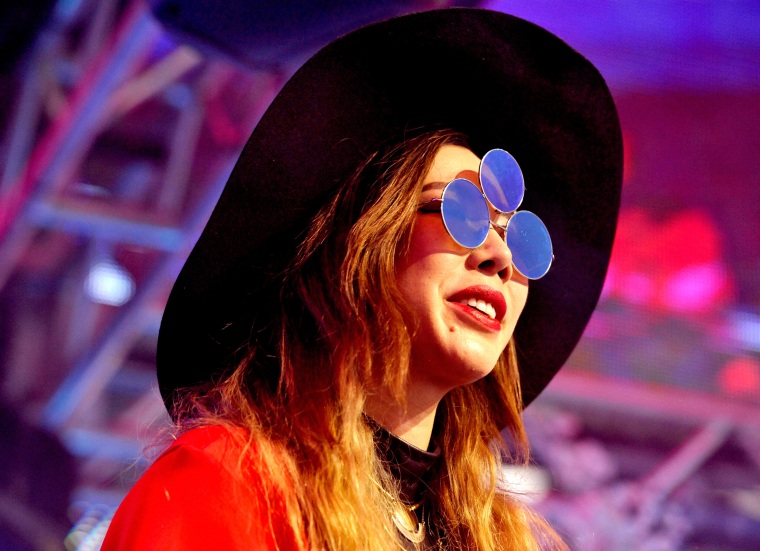Jennifer Lee, also known as Tokimonsta, made history December when she became the first female Asian-American producer to receive a Grammy nomination in the best dance/electronic album category for her 2017 album, “Lune Rouge.”
It’s a big milestone for any musician, but being recognized for this particular album, the Los Angeles producer said, is especially significant. In late 2015, Lee was diagnosed with Moyamoya disease, a rare progressive vascular disorder in which the arteries that send blood to the brain — including the carotid arteries — are blocked or become narrowed. If left untreated, it is fatal.
Lee underwent two brain surgeries in January 2016. Following her first procedure, she started out fine but then lost the ability to communicate through speech or writing. In an interview with the music magazine Pitchfork ahead of the release of “Lune Rouge,” Lee described it as if she was speaking a different language than everyone else. To make matters worse, she couldn’t understand music either.
But despite the personal and creative challenges, Lee remained patient. “I didn’t do anything, I just let time heal my injured brain,” she told NBC News. “Eventually the injuries settled and my brain was able to make the same connections as before.”

After two months of recovery, Lee finally “felt cognitively able enough” to create music again. At that point, her fourth album (which she worked on prior to her diagnosis) had been released and she was back to work on the music that would make up “Lune Rouge,” which was released Oct. 6, 2017.
The first song she completed after surgery, “I Wish I Could,” made her feel like “everything made sense,” Lee described.
“I definitely tried a few times before I got to that track, and the songs were really bad,” she said. “My brain hadn’t recovered enough to be at the level that I was before. It was really disheartening at that point and time when I started making music again. After my procedures, I thought I was OK. I could hear music again. But actually creating something and producing something, some aspect of my creativity was off. I couldn’t hear things like I used to hear it. I could hear music when it’s played but not composing it. So when I was able to produce ‘I Wish I Could,’ it was the first time I could finish a song from start to finish.”
After “I Wish I Could,” Lee said she was ready to make the rest of “Lune Rouge.”
“It’s hard when you’ve had your head ripped open with people tinkering,” she said. “And it’s hard when you’re dealing with your mortality and all the different facets of life and stress, and all I needed was this song to be made and I was able to make it.”
Born and raised in Los Angeles, Lee’s musical journey began as a child learning how to play the piano. While her initial foundation was classical, her musical palette expanded as she got older and explored underground hip-hop concerts, raves, and music events such as the KROQ Weenie Roast. Lee said she sees herself more as “an urban beat producer” but also blends in electronic elements.
Riding into 2019 with a Grammy nod, Lee isn’t ready to rest. She’ll be performing at a number of music festivals in the first half of the year, including the Bonnaroo Music and Arts Festival in June, and is already working on her next album.
“On ‘Lune Rouge,’ there were a lot of great songs but aesthetically the songs were very different,” she said. “I think with this next album, I want to touch further. I’ve got my old bodies of work, stuff I made in 2011, almost 10 years ago. And I’m trying to hear and remember who I was at that time.”
Lee is also hoping to do her part to help the next generation of artists through her music label Young Art, which plans to release “Young Art Sound II,” a compilation of up-and-coming artists in May (a follow-up to “Young Art Sound” released in February 2017).
“I’ve never been more excited for the future, and not for me, but for everyone else,” Lee said. “I’m so excited to see what next young kid to come up and be like, ‘Yo, I’m gonna change the game.’ And they won’t have to deal with self-consciousness about their difference. They’re going to feel empowered that they’re different and have the confidence to change something whether it’s in politics or in music or in film. There’s someone who’ll come and say, ‘Hey, I have something to offer you that you’ve never seen before.’ And I’m just waiting for that person, whoever it may be. And I hope whoever it is, I can be there to cheer them on.”
Follow NBC Asian America on Facebook, Twitter, Instagram and Tumblr.

